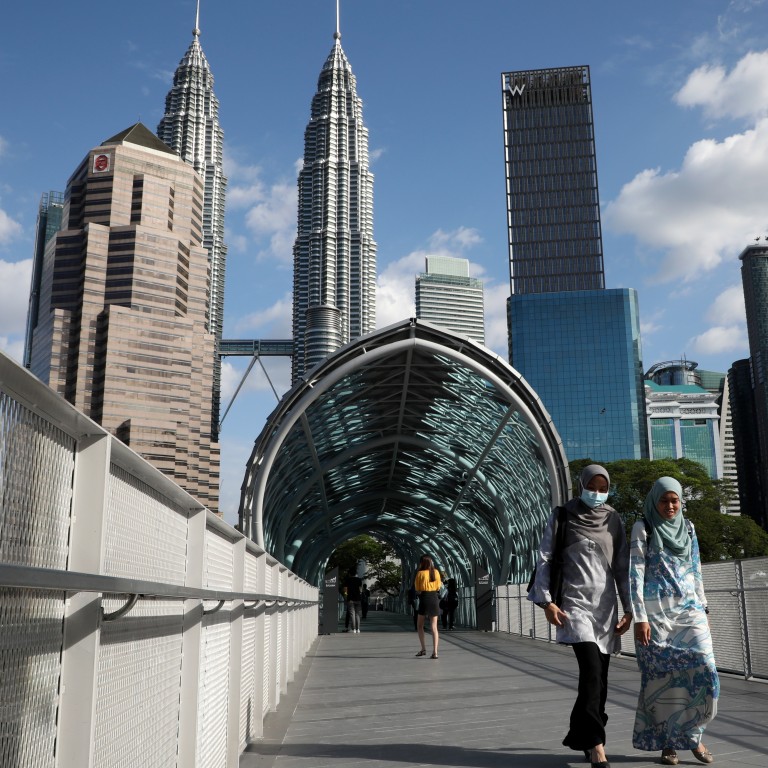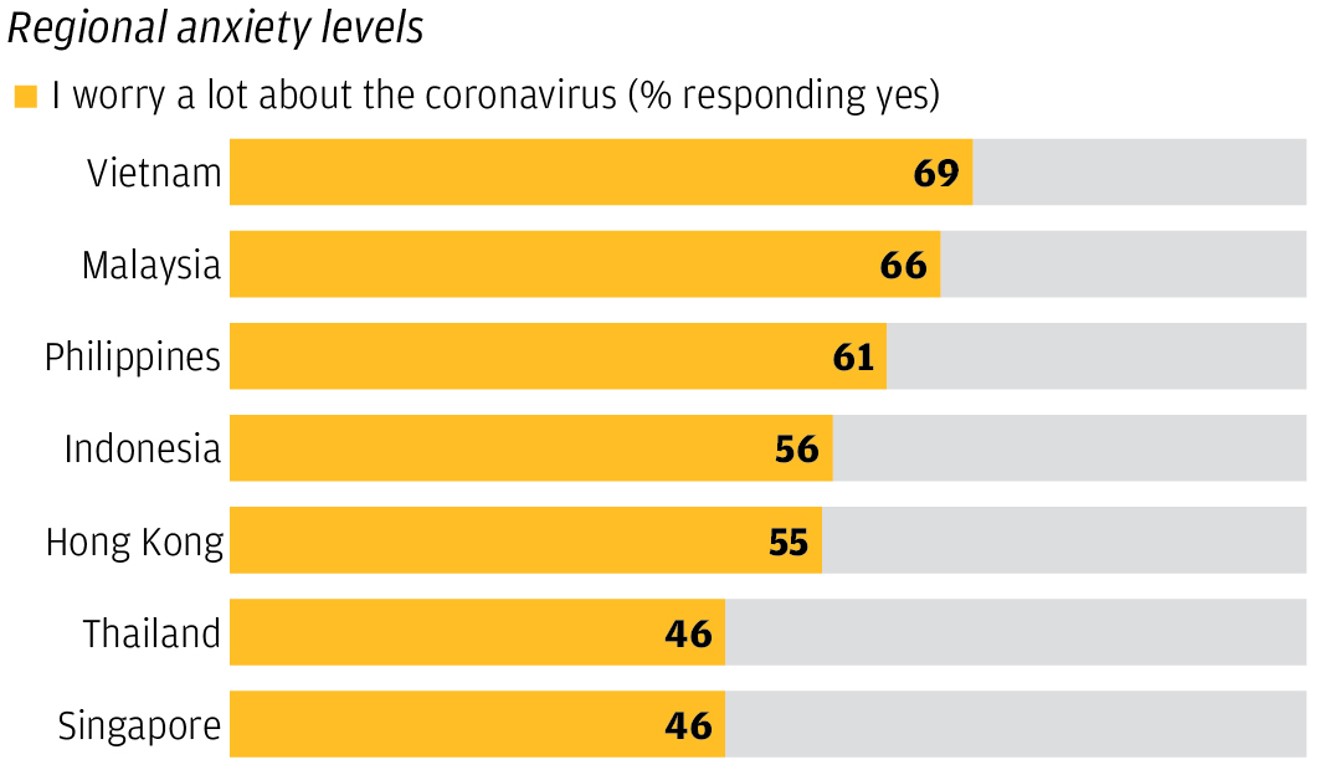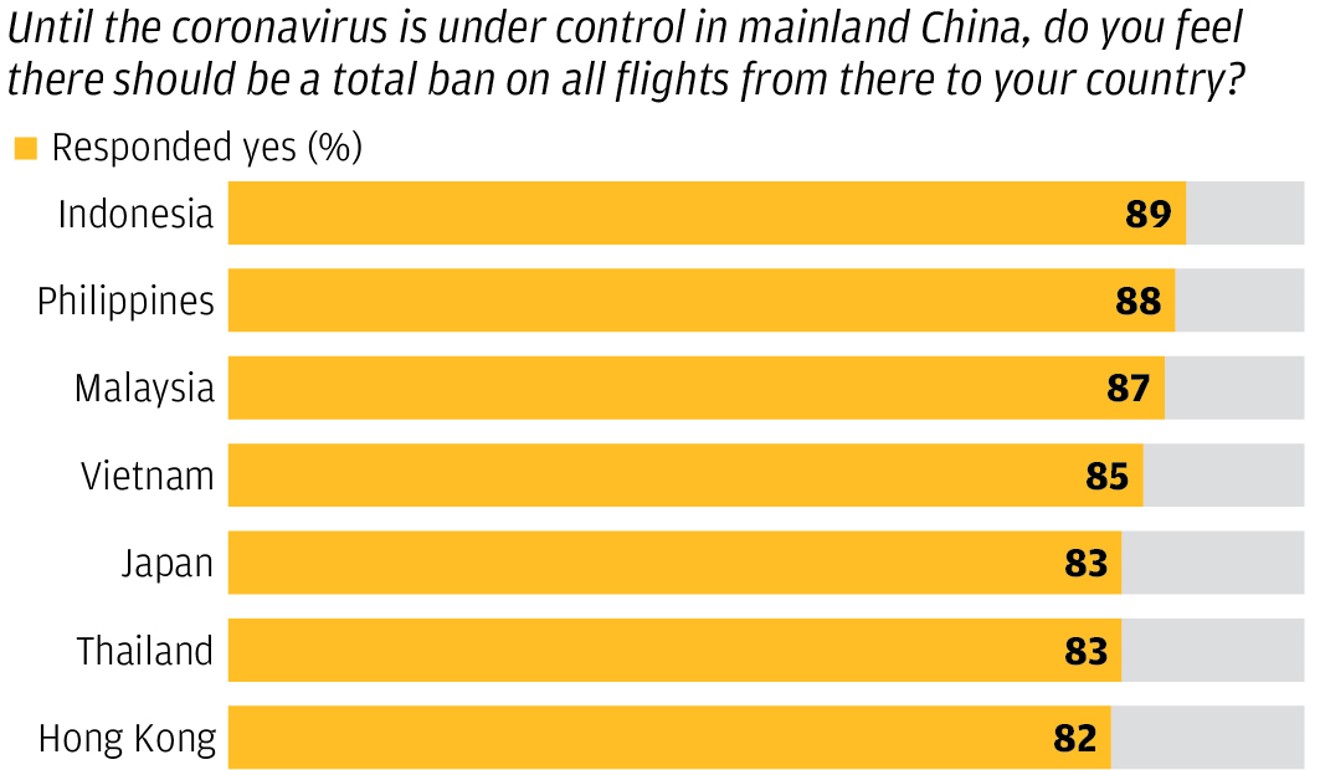
Coronavirus: Anxious Asian countries want China flight ban, says new poll
- Of those surveyed, 84 per cent want a blanket ban on all air travel from the mainland until the Covid-19 epidemic is under control
- Residents of Hong Kong and Japan are among those who believe the situation will worsen in the next month
The Covid-19 disease, caused by a new coronavirus that was first detected in the Chinese city of Wuhan, has infected more than 75,000 people around the world, killing more than 2,000.
About 85 per cent and 72 per cent of those interviewed, respectively, said they believed the number of local cases would go up in the next month.
Furthermore, some 73 per cent of Hong Kong residents thought the government had acted insufficiently or not at all in response to the virus.
“While we see high levels of anxiety about the virus across the region, people’s lenses do vary. In Hong Kong, ongoing mistrust of the government appears to have carried over to the handling of the coronavirus,” Black said.
Jho Low should come back to Malaysia if he has the coronavirus, police chief says
“In Japan, while people are not paying as close attention, it is possible the Diamond Princess story has fed fears that cases there will continue to increase,” he said, referring to the recently quarantined cruise ship.
However, anxiety was still rife even in places where the number of cases had not been particularly high and where there was trust in the handling of the local government.

There are still just 16 cases in Vietnam, for instance, but 69 per cent of its citizens interviewed for the study said they worried a lot about the outbreak. By contrast, only 32 per cent of South Koreans were very concerned, although the country had 30 confirmed infections at the time of the study. It now has 51 cases.
Hong Kong’s first Filipino domestic worker infected with coronavirus ‘in good spirits’
Thailand and Hong Kong residents were in between – with 46 per cent and 55 per cent of residents respectively saying they were very worried about the virus.
Cheris Chan, associate professor at the University of Hong Kong’s Sociology Department, said Hong Kong’s previous experience with the severe acute respiratory syndrome (Sars) epidemic in 2003 might contribute to the city’s pessimistic outlook. “People still recall all the terrible memories from Sars,” she says.

At the same time, Chan said, the shortage of masks and personal hygiene items had also caused anxiety. Many Hong Kong residents have queued for long hours to buy protective gear such as face masks, while hand sanitisers and even toilet paper have been out of stock in some shops.
She said people in less developed economies and with weaker health care systems might be more concerned about the outbreak. Contradictory information and a lack of knowledge on specific preventive measures as well as treatments have also, in her view, fed into people’s anxiety across the region.
Coronavirus: Malaysia says China-backed ECRL on track despite outbreak
“It’s a new virus … what scientists and doctors told you earlier, it may not be true now, because they are still researching and learning about it. That causes a high level of anxiety,” Chan said.
“People want to play it safe and they may do things that are not necessary. As we don’t know much, we are probably overprotecting ourselves because it’s something new and that creates further anxiety.”
She also said the idea of an “invisible virus carrier”, someone who is asymptomatic but that may be infected, has also sparked growing fears particularly in places where cases continue to grow.

It also revealed that 84 per cent of respondents across the region wanted a blanket ban on flights from mainland China.
Chan from the University of Hong Kong said this was a natural reaction as the outbreak began in Wuhan, in China’s Hubei province.
“When it comes to flights, I don’t think it’s something racial. It’s not about banning an ethnicity,” she said. “It’s about a geographical region that is the origin of the virus, because people don’t want this to spread to their countries. If this happened in another country, people would have the same reaction.”
Coronavirus: as 15 cases linked to Daegu church cluster, South Korea warns over mass gatherings
There have been an increasing number of reports of racism against people who appear to be of Asian ethnicity, particularly in Western countries, since the beginning of the epidemic.
Chan said this wave of racism was likely to die down if the epidemic were controlled within half a year. “After Sars, Hong Kong people were not welcomed by other countries either, but that kind of stigma did not last,” she said.
“But in this case, if it lasts for longer than six months and if after that there are continued infections that may lead to further racial discrimination, the stigma may last longer, although the tendency is for people to forget or to get over such impressions.”

